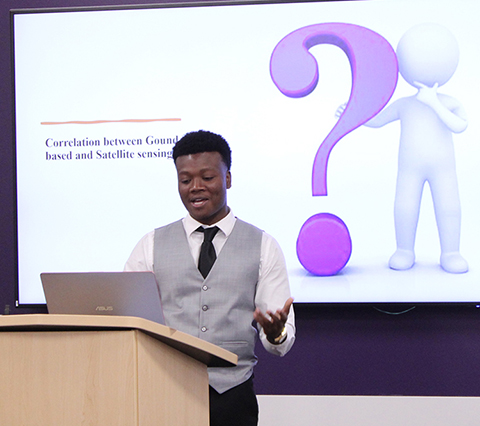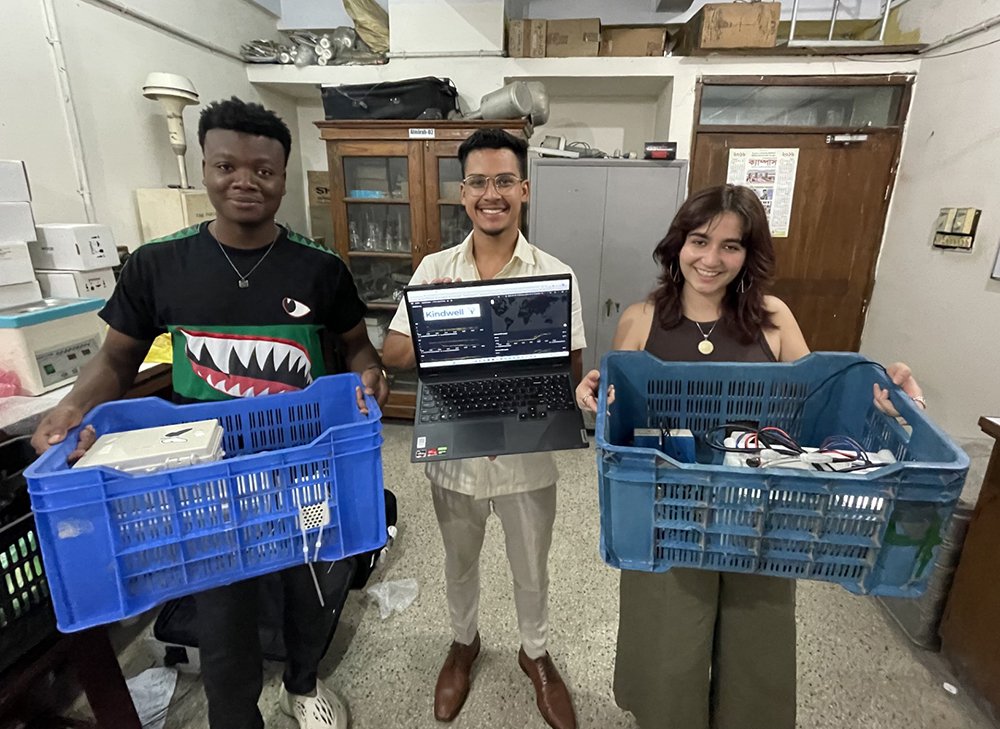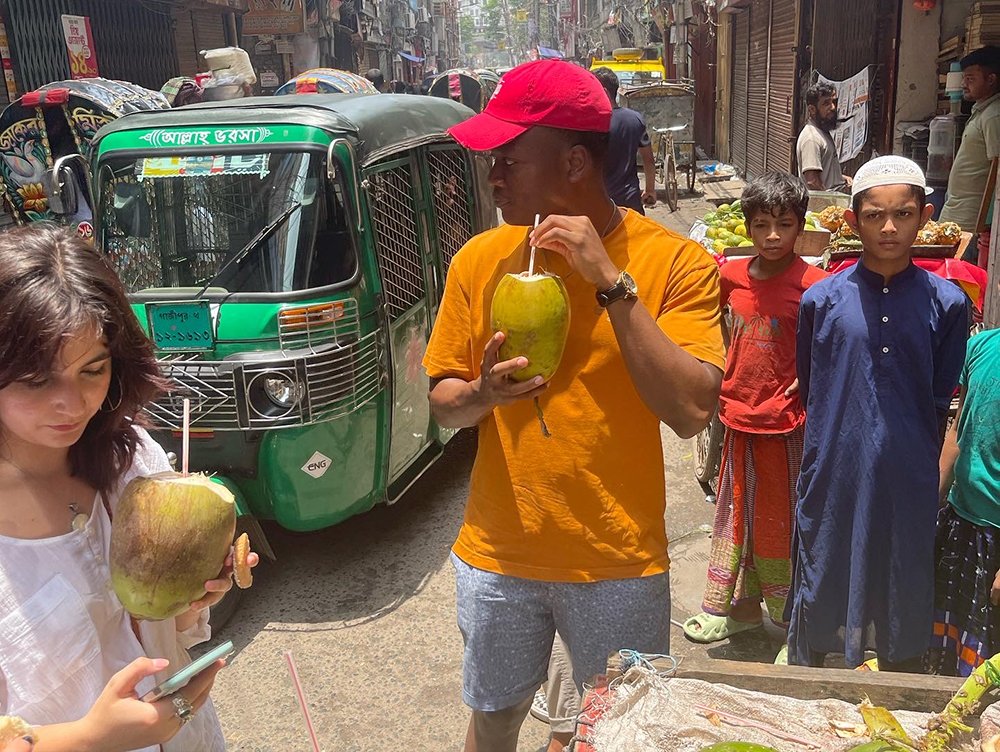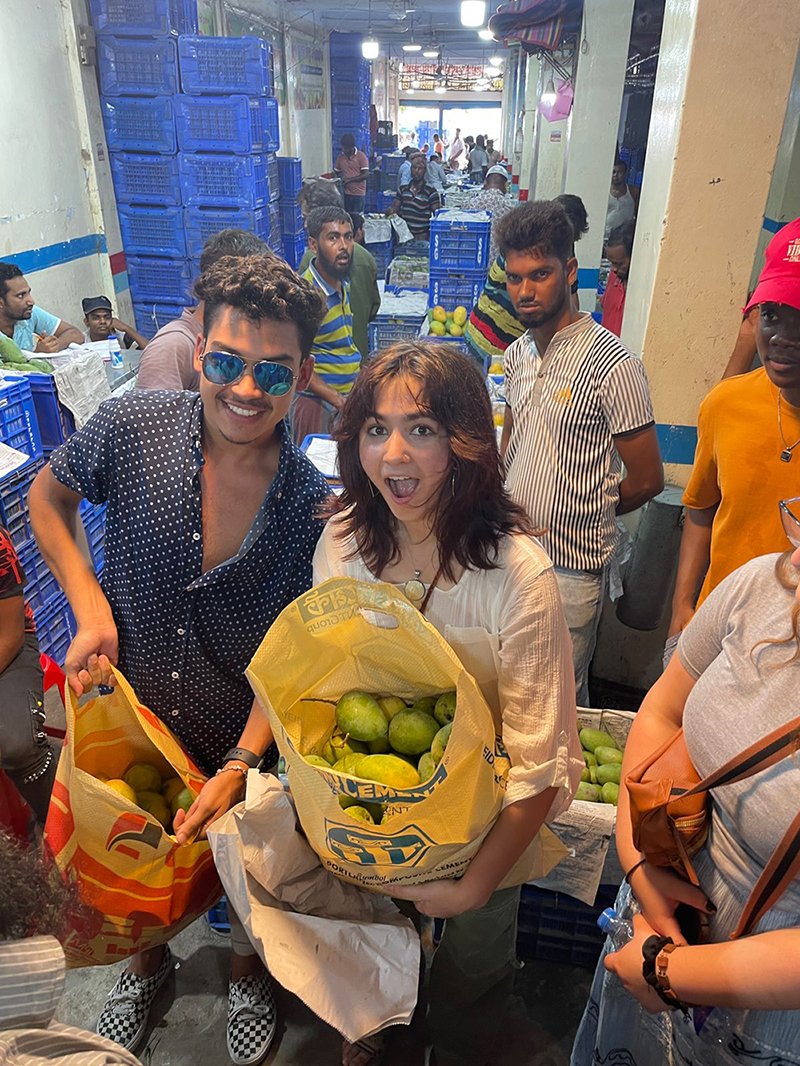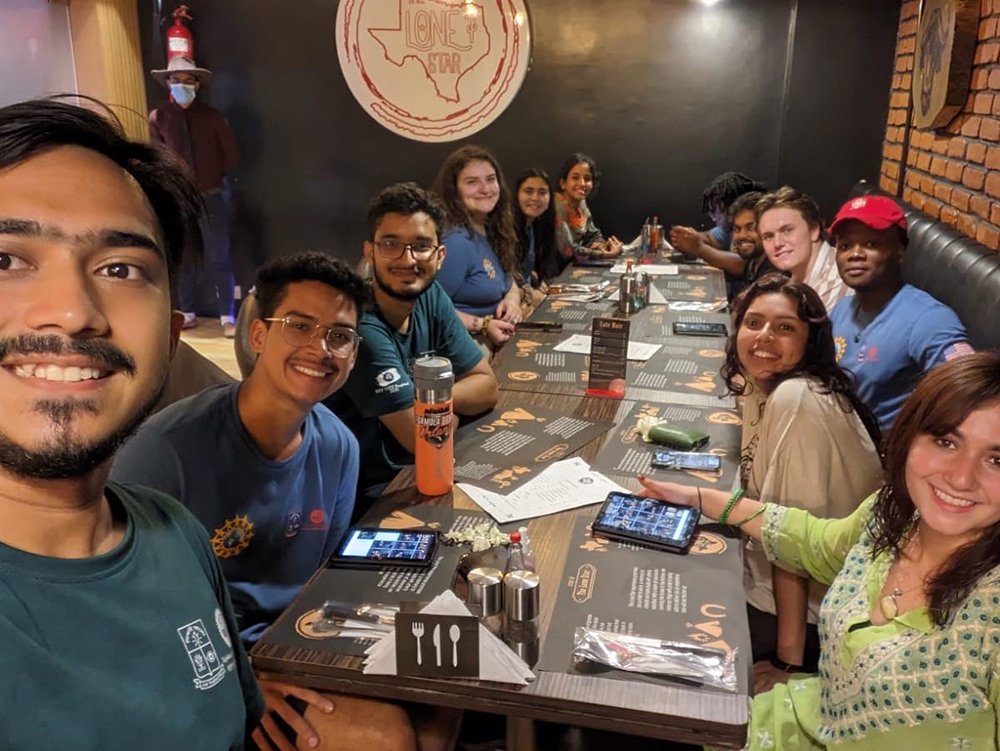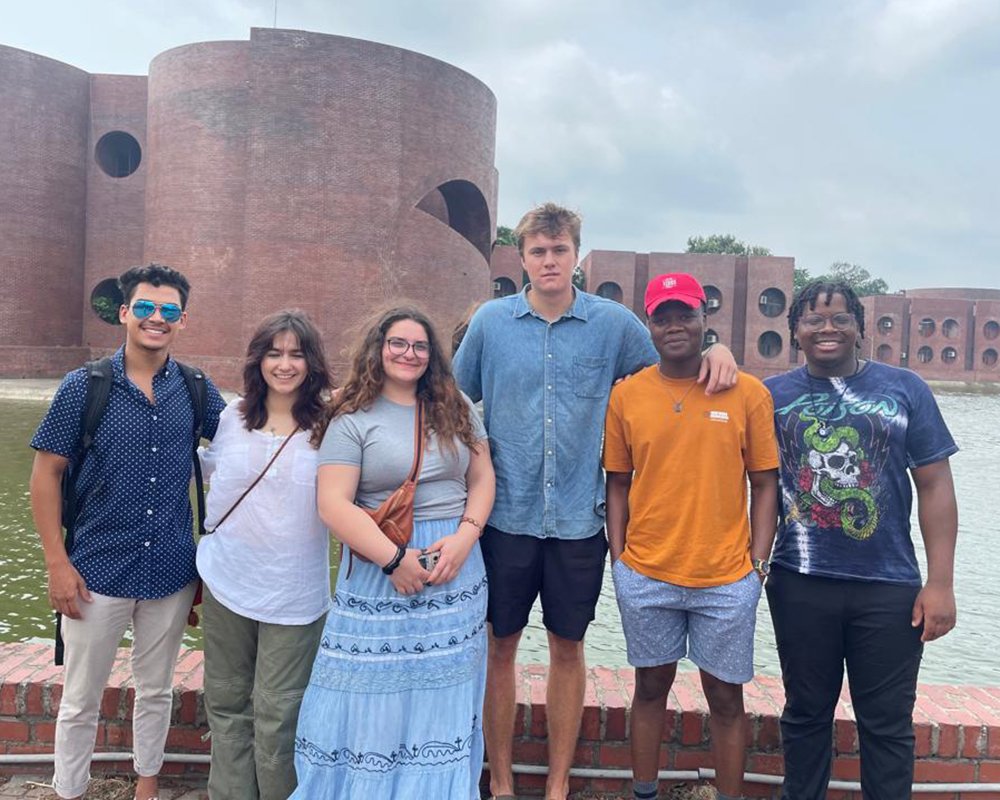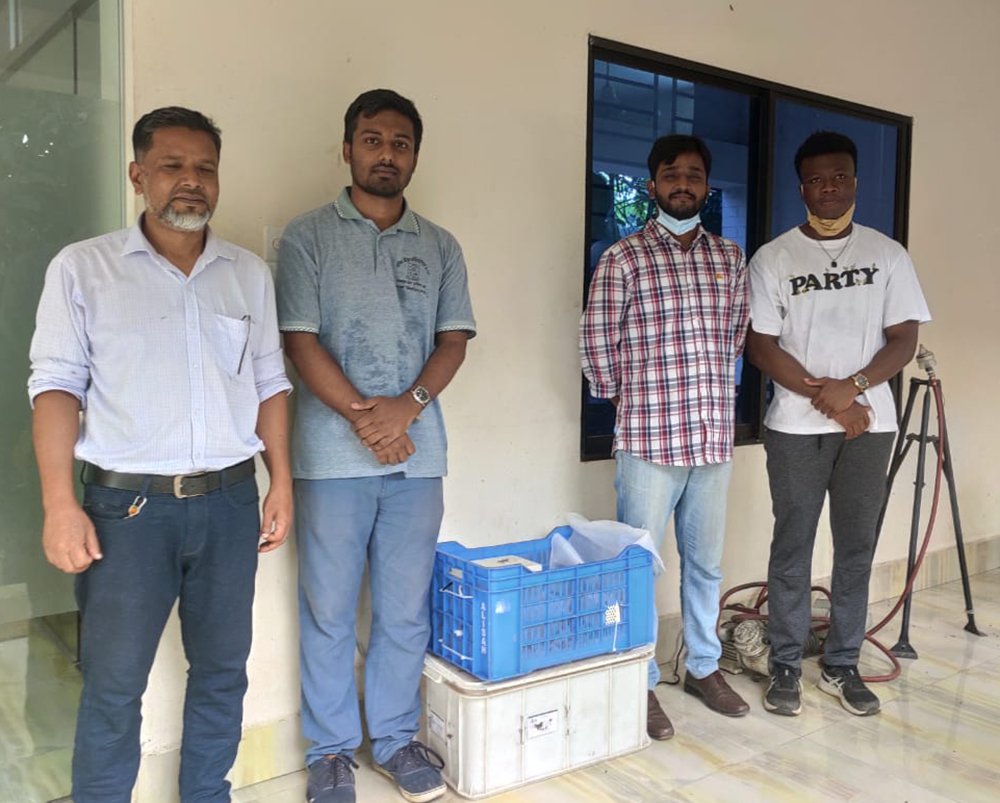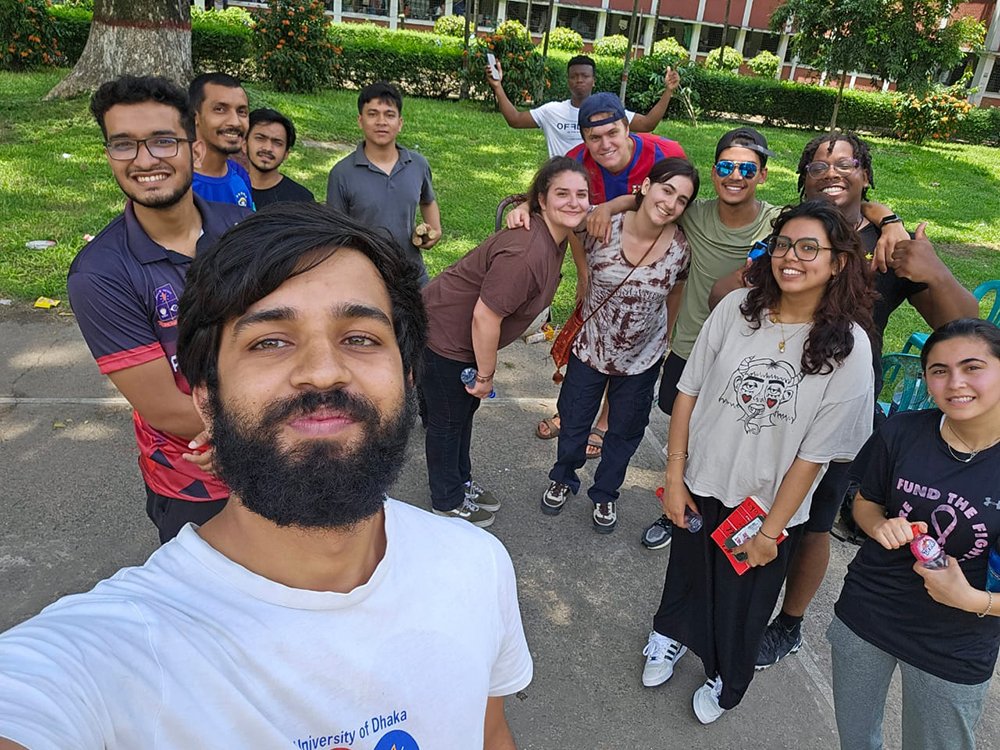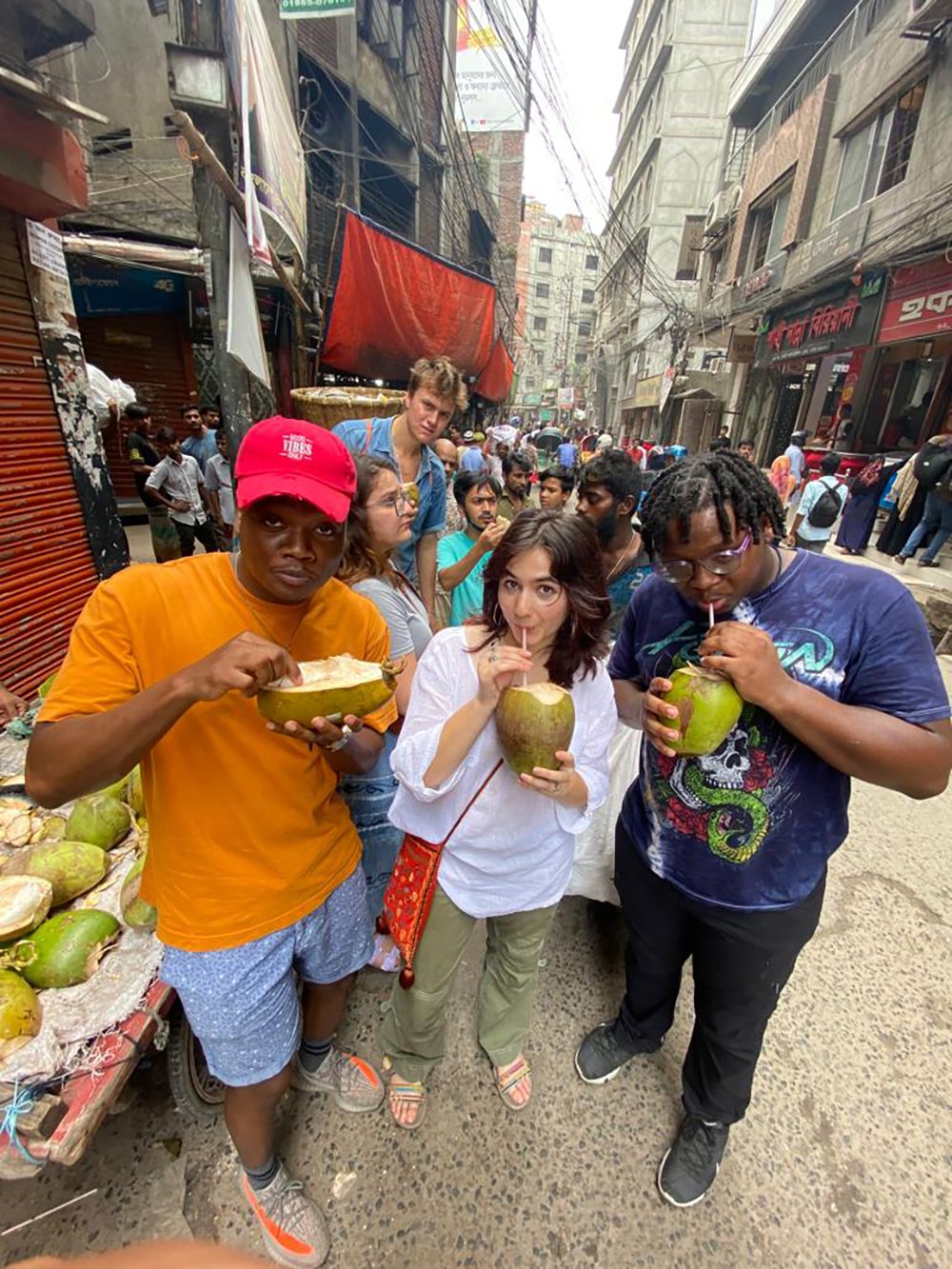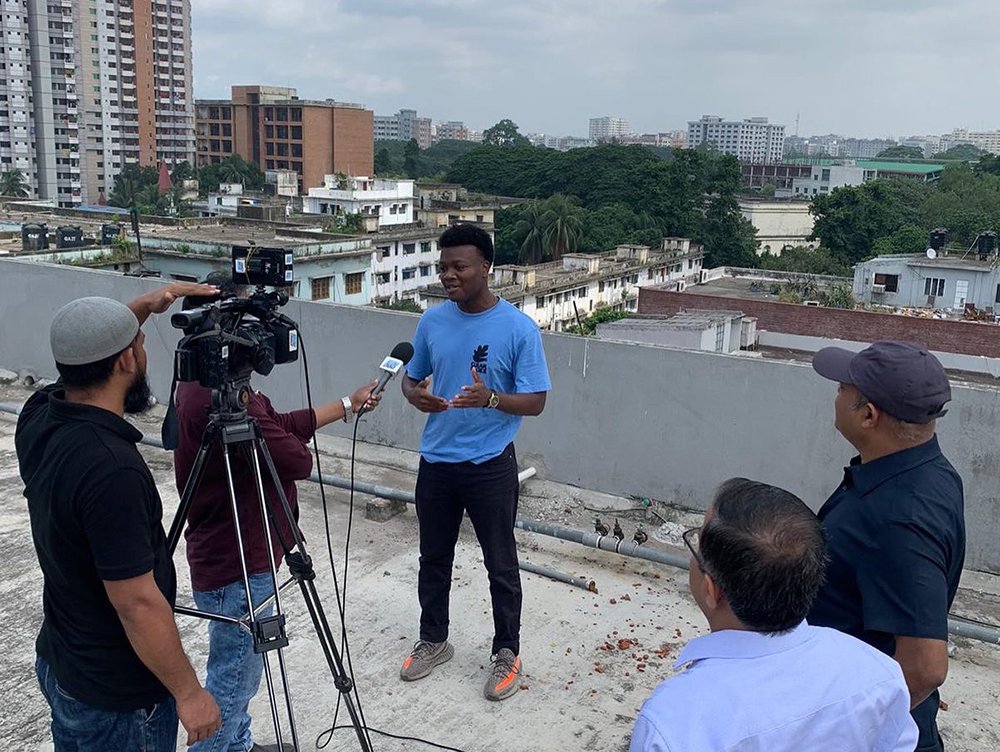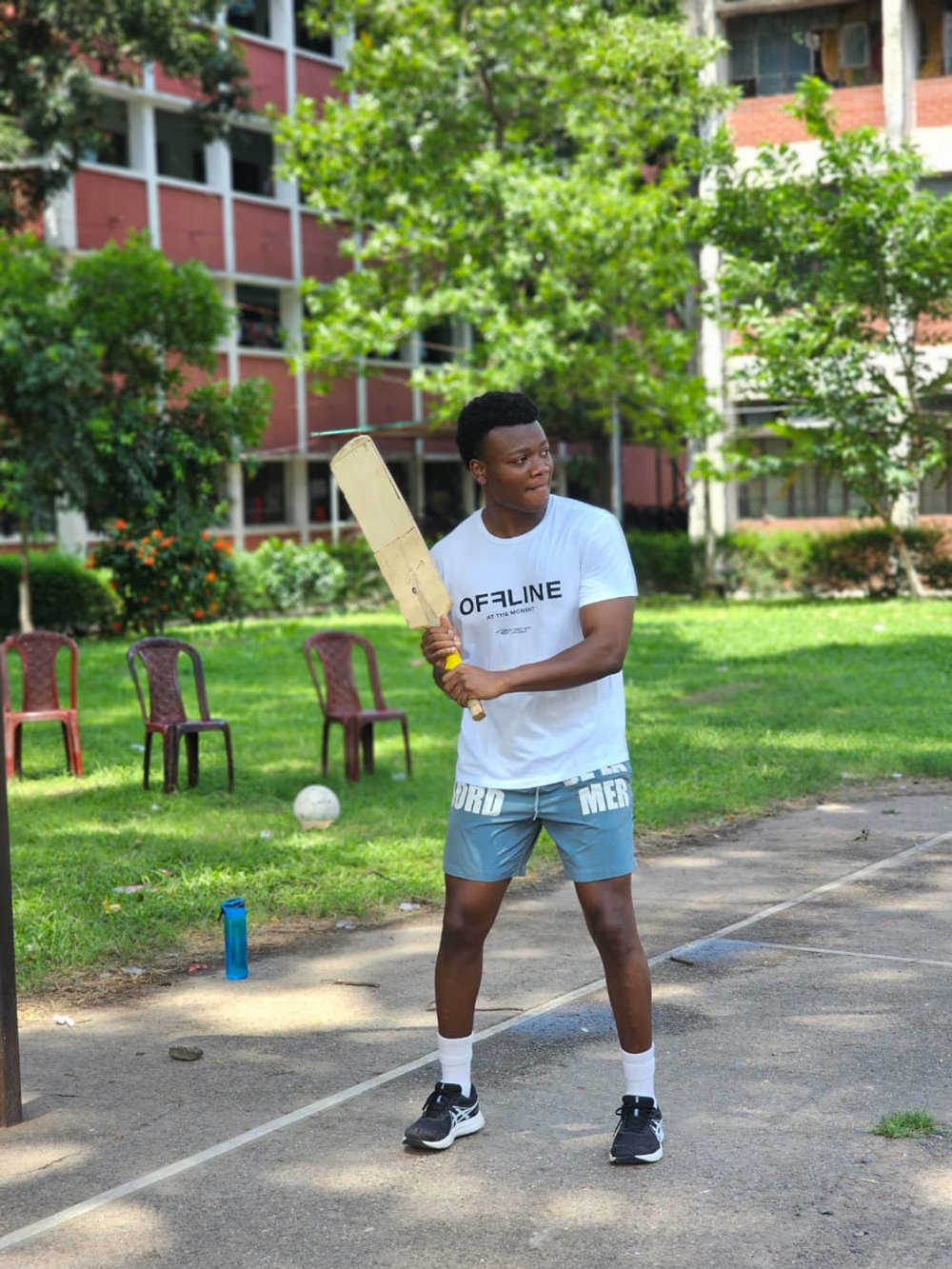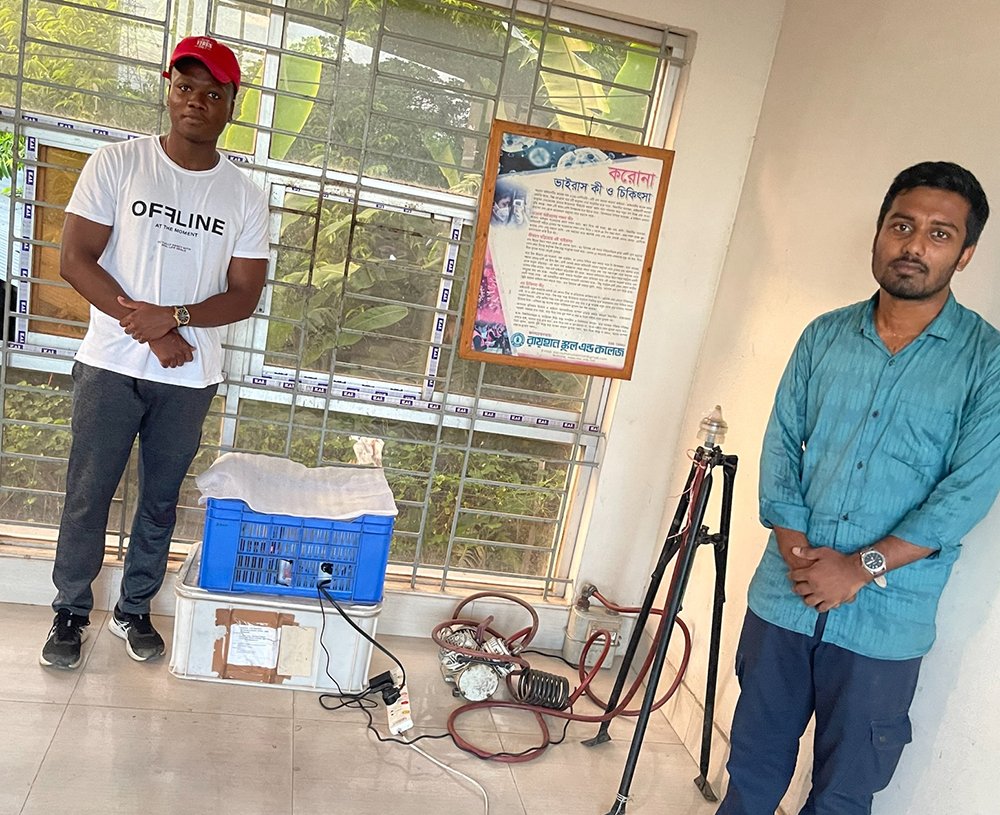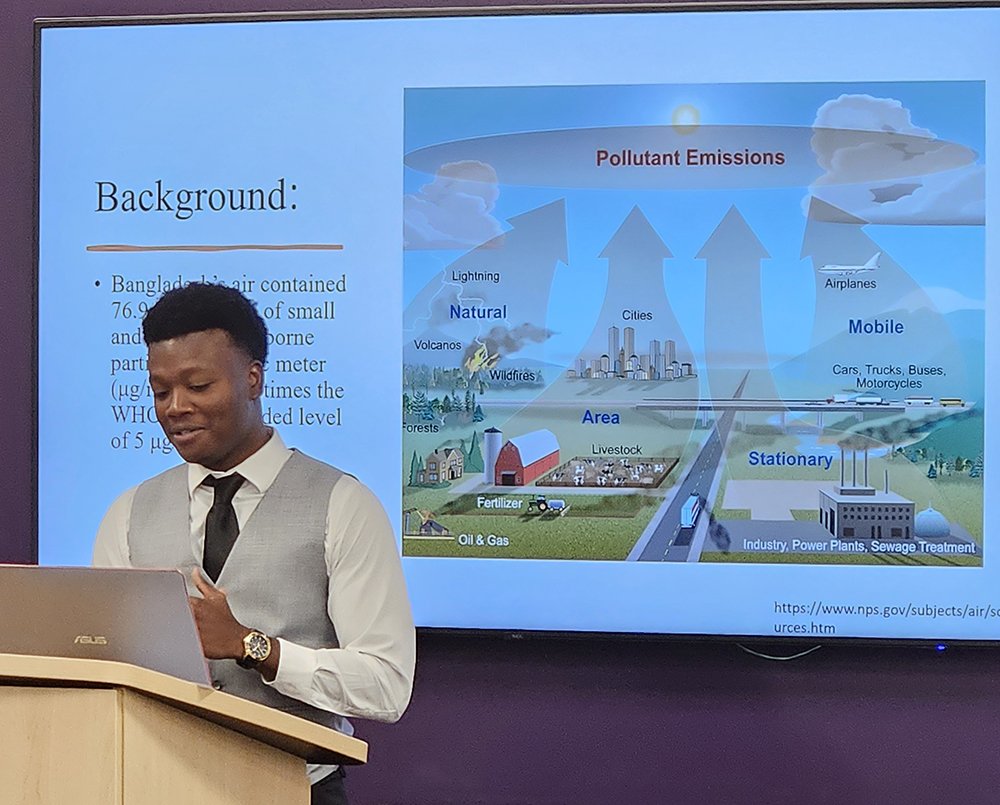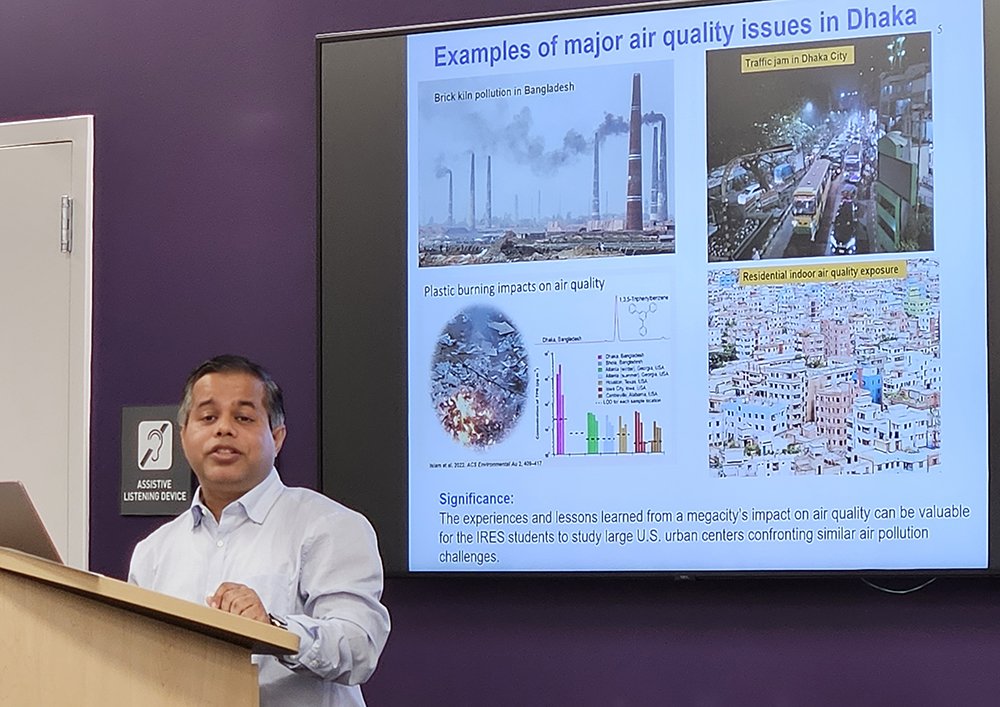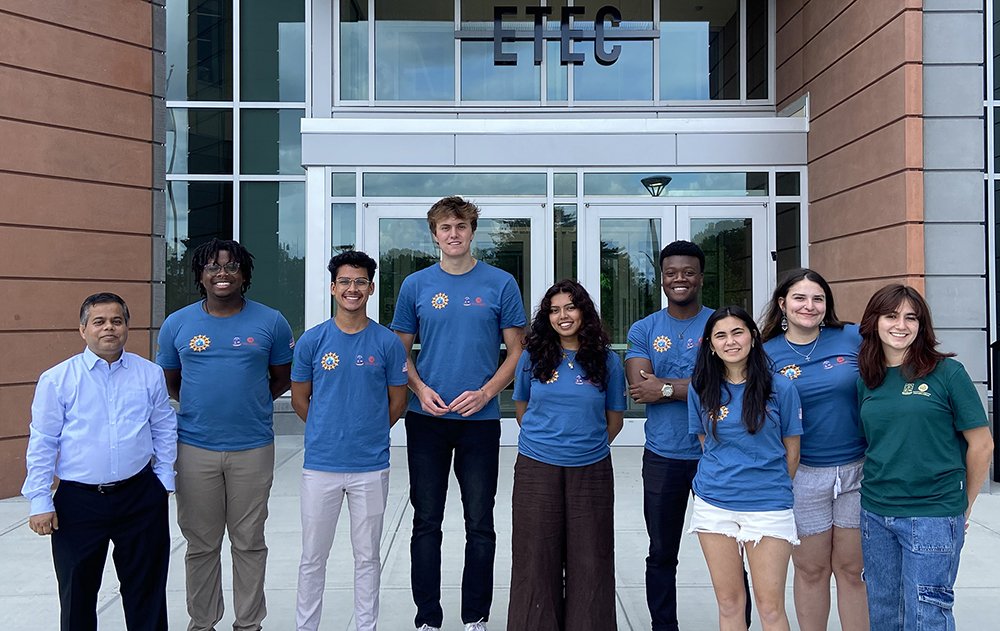UAlbany Summer: Studying Air Quality in Bangladesh
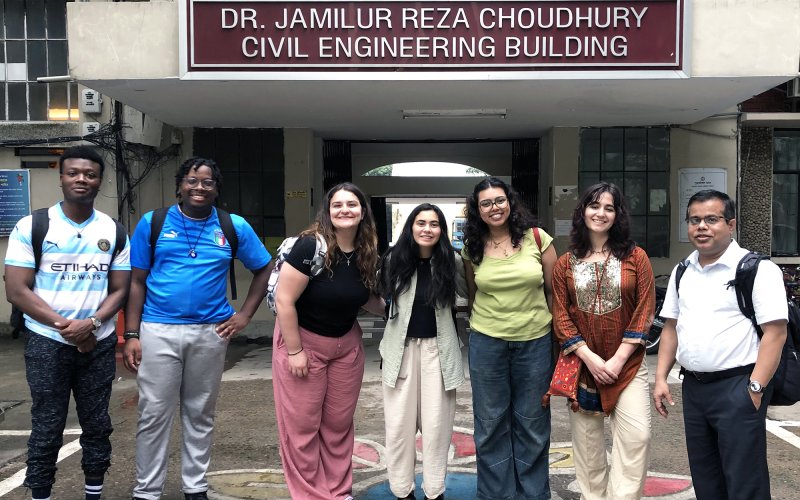
ALBANY, N.Y. (Aug. 31, 2023) — Senior biology major Marco Eugene first met Md. Aynul Bari during a summer research program in 2021.
The assistant professor of Environmental and Sustainable Engineering was Eugene's mentor during his studies through UAlbany’s Collegiate Science and Technology Entry Program (CSTEP). The enrichment experience is designed to foster success in STEM fields for students from traditionally underrepresented or economically disadvantaged communities.
Three years later, when Bari was preparing to take group of students from throughout the country to Bangladesh to study air quality, Eugene leapt at the opportunity.
“I have been working with Dr. Bari since the end of my freshman year,” said Eugene, whose research primarily focuses on monitoring air quality, particularly within low income communities. “I was very interested to go to Dhaka, Bangladesh, since our projects would tackle the same issues that we are currently working on in New York State.”
The trip was part of Bari's National Science Foundation (NSF) project: "NSF-IRES: U.S.-Bangladesh collaboration to improve air quality: Application of low-cost sensor technologies and satellite remote sensing." The international research experience drew students from SUNY Oneonta, Columbia University, RPI, University of Colorado Boulder and other schools around the country.
“Since Marco started working with me, he has been involved in measuring indoor and outdoor air pollutants across neighborhoods, particularly underserved communities throughout the Capital Region," said Bari. "As part of our summer program in Dhaka, he did very well in characterizing waste burning (such as in landfills or medical waste management facilities) and how the practice impacts air quality there. A key component of this is to understand how low-cost sensors and satellite remote sensing can be incorporated, with the goal of providing a sustainable solution for data collection.”
Traveling to Bangladesh also gave Eugene the chance to look at things from a different perspective.
“The Bengali people are very hospitable,” said Eugene. “Our mentors from Dhaka University were so supportive during our time there. We not only learned how to navigate the difficulties that might arise from a researcher perspective, but we also learned some very essential social skills in terms of dealing with different cultures.”
The nearly 8,000-mile trip to the South Asian country was a massive change of pace from Eugene’s first experiences as a first-year student at UAlbany, which coincided with the COVID-19 pandemic in 2020.
“One of the main reasons why I came to UAlbany was because I love the campus. The pandemic had just started, which made it difficult to get a proper tour,” said Eugene. “I watched a lot of YouTube tour videos, and once I started my freshmen year in 2020, being here in person, I knew that I made the right choice.”
For the New Windsor, N.Y., native, UAlbany also offered an opportunity to be close to home while studying how the environment can impact marginalized communities.
“I am majoring in Biological Sciences and minoring in French,” said Eugene. “Coming from a Haitian background, and having been exposed to some mixtures of Haitian-French cultures, I don’t want to lose that and that is the main reason for my French minor.”
Eugene recently served as president of the French Club on campus, though his research studies haven’t left him much in the way of free time, especially considering he plans on applying to UAlbany’s PhD program in biology after graduating in May 2024.
His next steps will be to continue his research with Bari, as well as study in the lab of David Carpenter on the University’s Health Sciences Campus, where his work will focus on studying the effect of environmental factors such as poor air quality on people’s health.
The path to his PhD may have taken him around the world and back, but Eugene is particularly thankful for two members of the UAlbany community for their support in his endeavors.
“Dr. Bari has been a great mentor to me ever since we met, and I am very thankful for his guidance,” said Eugene. “Ms. Lourdes Thebaud (associate project director for CSTEP) has also been a great help to me. She not only helped me get my first research internship, but she is always interested in knowing what I am currently and giving me advice.”





